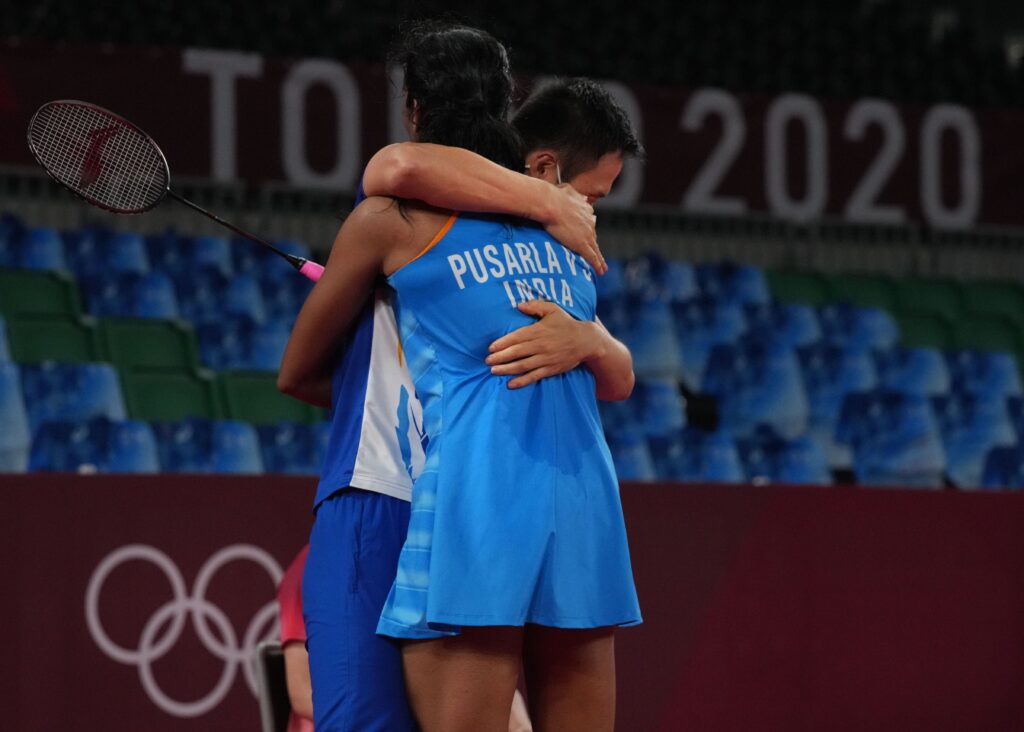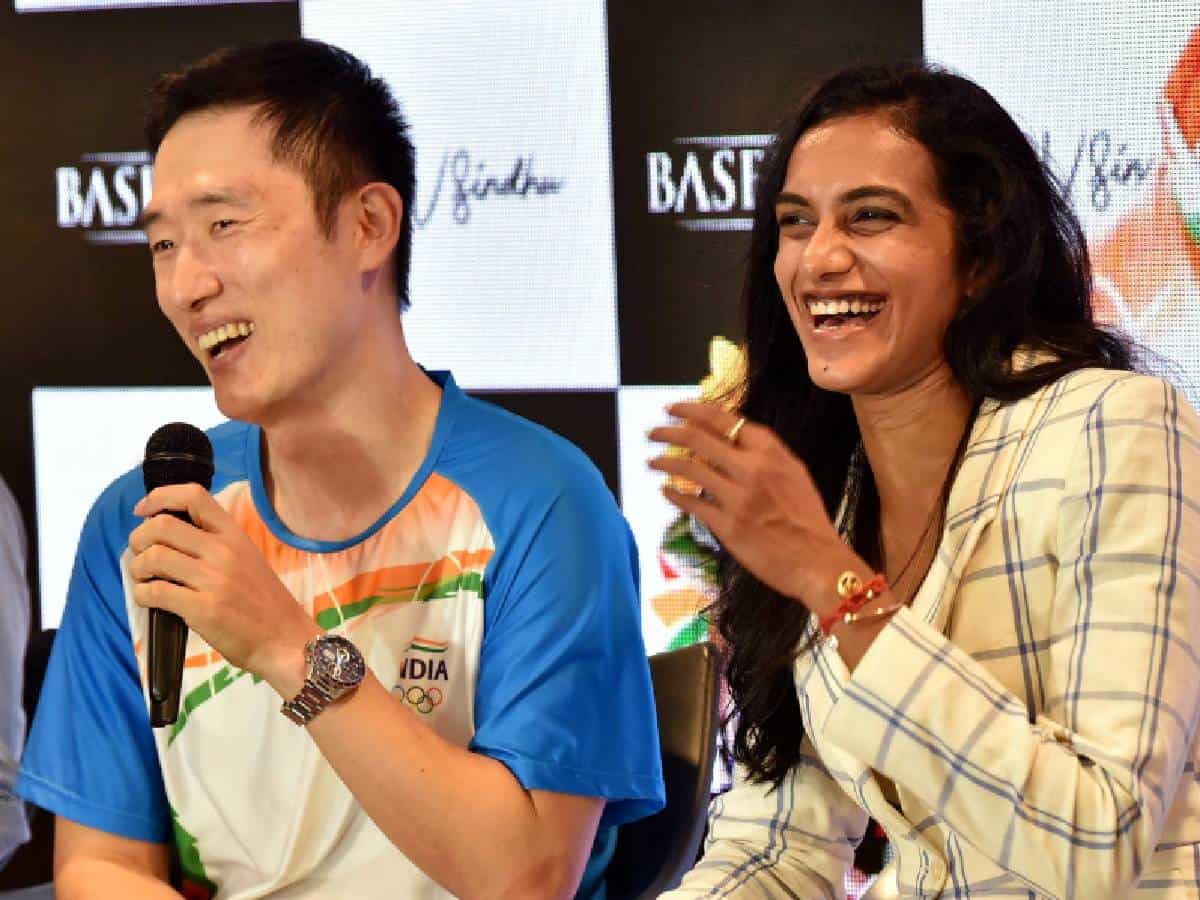PV Sindhu’s bronze medal in the Tokyo Olympics has not only established her legacy as one of the country’s ace shuttlers but it will also go down as one of the golden moments in the history of the Indian Olympics.
This feat also ensured that her 42-year-old South Korean coach Park Tae-Sang’s name does not go into oblivion among the Indians, at least in the near future.
When the union minister for law and social justice Kiren Rijiju met the Olympic medalist and her coach upon their return from Tokyo, he animatedly said to the former South Korean international: “You have also become a hero. Every Indian knows you.”
The head coach was ecstatic when her disciple sealed the game against China‘s He Bing Jiao for her second successive Olympic Medal. The medal marked an important milestone in his coaching career which the Korean shuttler could not achieve in his playing days.

Park Tae-Sang, an Asian Games gold medalist (2002) went down in the quarterfinals in the 2004 Athens Olympics. So, Sindhu’s win in Tokyo helped the former player to be associated with Olympic glory.
This South Korean shuttler also accounted for a bronze medal in Asian Badminton Championship in his playing days before he retired in 2013.
In a virtual press conference organized by the Badminton Association of India, the coach thanked the Indian fans and Sindhu. “It is an important moment for my leadership career because as a player and coach I never won an Olympic medal. So it is a first for me too. I am very happy, I can’t express myself.”
Sindhu had been training with Park Tae Sang for more than a year. In late 2019, the exit of women’s singles coach Kim Ji Hyun marked the arrival of Park in the Indian badminton circles.
He came to India after a five-year successful coaching stint with the South Korean national team (2013-2018) and took Sindhu under his wings. In early 2021, she shifted her base from Pullela Gopichand Academy to Gachibowli indoor stadium to exclusively train under him.
It is believed that the South Korean shuttler had a big part in improving Sindhu’s defensive game. But what struck the eye was the South Korean’s calming influence and his mental conditioning of Sindhu which paid dividends in Tokyo.
Park had an active presence on the sidelines closely monitoring her star shuttler game and providing vital inputs during the match.
PV. Sindhu acknowledged. ”He never showed nerves. We had eye-to-contact on the court. As we practiced a lot together, I understood what he was saying. Every Time I had eye contact, I knew how to play the next point,” the two-time Olympic medal winner said.
“I used to calm Sindhu telling—Aaram Se, during her rallies as the match was not over yet. I did not want her to make mistakes by letting her be aggressive and wanted her to calm down,” Park added.
After the semi-final defeat, the coach’s word of advice helped in picking herself up for the bronze medal match.
“He told me there is a big difference between a fourth-place finish and a bronze medal. This struck me hard. I realized how important it was to get a medal and then prepared for the next match with that state of mind,” she said.
Sindhu and Park kept training hard as the COVID-19 pandemic created havoc in 2020. The coach had his fair share of sacrifices as he was away from his family in South Korea for much of last year.
“I have seen my family for just 13 days since last February,” Park said. “I miss my 3-year-old daughter having promised her to return home soon. She wants to do swimming. So, I will be going to Korea soon.”


